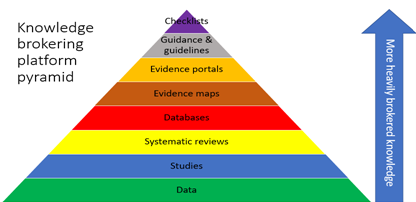Hostility to established-knowledge is what this current trend means for numerous people worldwide; they are unsympathetic to those forming a knowledgeable opinion. The word ‘academic’ is offensive to a particular part of this conglomerate.
The idea of ‘expertise’ plays a focal position in new businesses. Every time an issue occurs, the instinctive reaction is to hunt for a significant expert with first-class qualifications who can go to the bottom of such a case. An enormous amount of consultancy agencies depends highly on these well-accepted practices; industries invest billions on these ‘experts.
How do we define the words expert and expertise? According to the Oxford English Dictionary:
· One who is an expert or has gained skill from experience.
· One whose special knowledge or skill are highly regarded as an authority.
What do we must learn from these concepts?
· Experience is a genuine mode to acquire understanding.
· Knowledge is to some degree demonstrable; possible to be modified from context to context without experiencing significant loss when transferred.
· Authority belongs to those who are in the ‘know.’
Studies reveal that our current notion of all these terms is outdated and out of place for the actual-complex globalisation we live in. Some of the skills the expert needs to update are analytical frameworks for intervention design and robust methods of reducing complexity. We need to innovate our mindset and framework.
What is the expertise?
· Depth of knowledge on a specific subject.
· It is a thorough understanding of how a system works.
· Stay engaged in their field, keeping an eye on related disciplines.
· It is the ability to think critically and use evidence on their subject.
The Neo-Expert
A ‘Neo-expert’ is a person with the expertise of designing custom maps, who accepts that operational plans are not only those she/he has experienced. A Neo-expert is a process expert who considers attacking processes from multiple viewpoints, gathering, analysing, and integrating them to bring up decision-making actions.
Approaching a ‘complex matter of interest’ from more than one track, a tactic well-known as ‘perspective-based pluralism’, can be performed in combination with essential consideration to produce a problem-specific-time-limited, driving in such complex issue to that map.
When informing any decision-making, you must understand it is limited. Carrying out any decision-making must be monitored to make it easy to recognise that any decision taken might be wrong. So Neo-experts must be involved both with the process of producing context-specific understanding and taking care in directing such knowledge unto the real world.
Neo-experts have a vital role in solving complex-problems, collectively drive out each participant' expertise to facilitate suitable outlining of the problem-solving process. Enhances strategies to lead the business, divisions or individuals towards a specific goal rather than just providing by-the-book knowledge; he/she helps us to reason.
What are Neo-experts bringing to an organisation?
· A better comprehension of the organisation standards and dynamics forces.
· The ability to recognise the organisation gaps in the processes.
· Add up expert staff and professional associates.
· To discover potential talents to make the most out of the wisdom of crowds.
· Put his knowledge tools to analyse complex processes.
· Reducing uncertainty and filling knowledge gaps.
· Giving possible three scenarios to the changing of operations.
· Deliver trials showing statistical-significant results, publishing them quickly on various Social Media.
· Conducting systematic reviews to deliver practical methodology guidelines.
· Train staff, give them the tools necessary to access data to understand and analyse it.
‘Neo-Experts’ struggle to generate new-productive patterns for each intervention, possible taking on ‘modernist’ expertise in its development, keen commitment with the corporation, centred on transferring best skills to their clients. The expert must supervise solutions continuously in case of any risk outcome. The recommendations must be consistent to match the particular circumstance of the business.
The Neo-expert, focusing on the context, must persistently question the efficiency of a strategy when put into practice. Good Neo-experts will struggle to diminish the likely impact of changing whilst acknowledging that the corporation must do business in the future.
How does the Neo-expert should go on the process of multi-perspective blend? Many useful frameworks and methodologies exist that can support the work of the promising Neo-expert.
Neo-expertise builds on the skills to allow a group of stakeholders to arrive at a specific context, limited but valuable, understanding their circumstances, enabling them to achieve specific-preferred outcomes more often than not. Decision-making has profound implications on how an organisation might operate.
The traditional expert can still be a significant contributor to such a critical process. The major shift to their role is that their once recognised particular type of knowledge is no longer the most significant source of understanding in an evolving landscape of interactions and variations.

How should any organisation operate?
Experience - Experts stay engaged in their fields whilst gaining expertise.
Emotion - Count on a compelling story to get the customer's attention and loyalty to your brand.
Evidence - The use of evidence is a specific form of knowledge that takes a long time to learn, based on actual-world events produced by Science, bringing the world into science conversation.
The value of information avoids misunderstanding or misusing data; media must report the research's real-detailed process.
Are you evolving to become the Neo-Expert, or are you left behind?
Prophetic Technology

